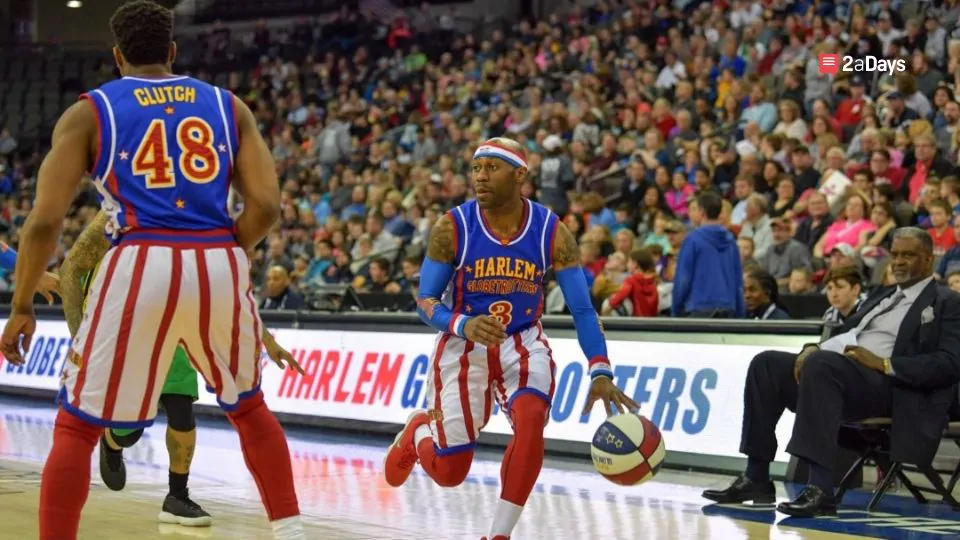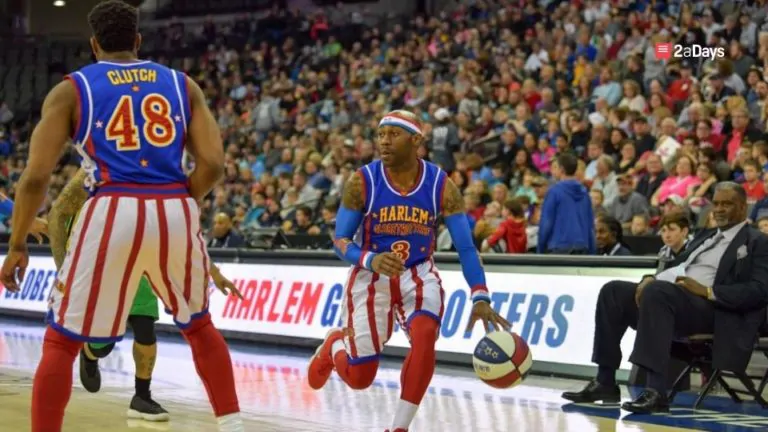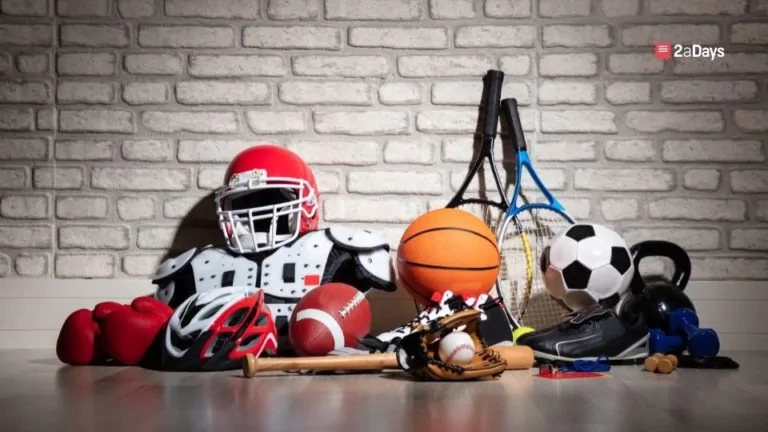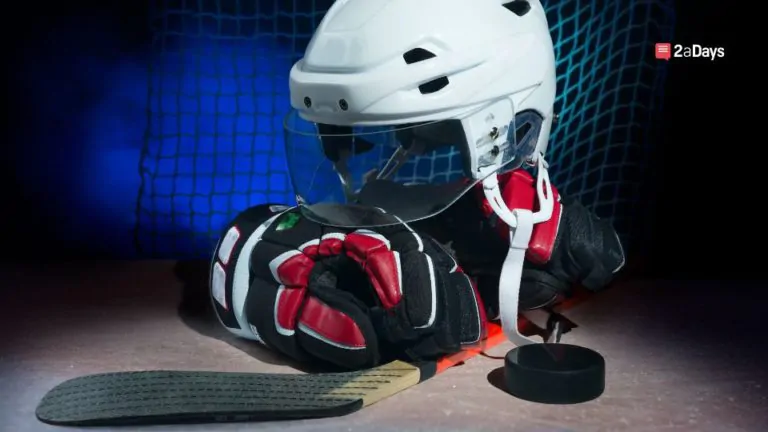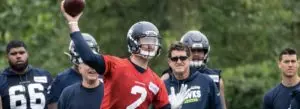Tay Fisher is currently a Harlem Globetrotter who had a humble start at Kingston High School in Upstate New York. As a high school standout, Tay eventually found his way to Siena College where he is one of the Saints' “most revered student-athletes ever.” He was a standout leader, positive teammate on and off the court, and extremely skillful basketball player in both high school and college. His early success led to Tay being drafted to the Harlem Globetrotters in 2008. Since then, he's remained a prolific shooter and is recognized as being one of the best four point shooters on the Globetrotters. When he isn't overseas with the Globetrotters or playing on courts closer to home, Tay runs fundamental basketball camps, skill camps, preseason workouts and more to always help the next generation of athletes. Here are his top tips for recruits like you.
1. What is an offseason tip you have for current athletes to improve upon their game?
In my opinion, there is no such thing as [an] off-season. You must always be on. Yes, you can rest, relax at times to rest your body, but you must always stay active so your body is ready for any obstacle that comes in front of you.
I would recommend doing Yoga. I love to do Yoga during the season and in the off season. You must always listen to your body. When it needs rest make sure you do that, but if you know how to maintain your body, strength and ability level during the off season, you never drop below your standards. You will always be on and prepared.
Related: Rate your Coaches, Facilities, and Campus Visits
2. What is the best piece of advice that a coach has given you and who was that coach?
The best advice that was given to me is play the game of basketball like it is your last because it could very well be. You never know if you will get injured or something could happen to take this game away from you. I have always been one of the shortest players on my team, but I always felt like the biggest because of my heart. People can measure your height but not your heart. That was one thing I always knew I had bigger than many people. That advice was given by my dad who is also my coach and the person who introduced me to the game of basketball.
3. Was the transition harder from high school to college or college to professional basketball?
The transition was hard for both. From high school to college I wasn't ready academically. That was the hardest part for me, but I learned how to manage my time in the classroom and still be ready to perform at a high level. From college to the Harlem Globetrotters was really hard because I had to learn how to perform every single night (literally). The traveling was difficult, the time difference was difficult and learning all the tricks was like learning basketball all over again. Not every basketball player can do what we do which makes us special. Being a Globetrotter taught me how to be creative, consistent and mentally tough–all the essential life skills needed to be successful.
I approach my life the same way I do on the court: happy and ready to do my best!
-Tay Fisher
4. What two characteristics make a great teammate?
Consistency and patience.
5. What advice can you give to a college athlete who is looking to get off the bench?
They must consistently find ways to be in the game. Know your team and see what they are lacking that you could bring to the team and make them better. Maybe you can become a better defensive player because your team needs to improve on defense or a better shooter because your team isn't good at shooting the ball. Find your strength and use it to be a part of the team and in the game
6. What is the best piece of advice that you can offer to an athlete who is not connecting with a coach? To improve team culture?
Remember your coach is the coach for a reason. He knows what he is talking about. He might not always be right, but try to find a way to connect with him. At the end of the day it is all about being respectful. You can disagree with a lot of people including your coach, but find ways to have mutual respect for each other and try to build around his philosophy with your skills. No matter what type of relationship you have with your coach it is the team bonding that matters the most. You must be a player that your teammates respect in order for them to follow your lead and listen to what you have to say.
7. What advice do you have for a college athlete looking to play at the next level? Professional? Overseas? Harlem Globetrotters?
You must continue to work on your skills and your craft. You can always improve–nobody is perfect. If you are a good shooter try to be a great shooter. Always try to improve on the player and person you were the year before. As a Harlem Globetrotter we must always continue to be creative and innovative. Figure out what can separate you from the other players. What makes you special? The way I approach the Harlem Globetrotters is the same way I approach life.
8. Since becoming a Harlem Globetrotter you've given back endlessly to your community. How are you translating your own basketball success to younger athletes in your community?
I have been giving back to my community before becoming a Harlem Globetrotter so it has always been a part of my life and goals to give back to the youth and see them succeed. I will always be Tay Fisher before I am Firefly. This is who I am and one of the many reasons why being a part of the most prestigious team in sports history has been my calling. Not many kids in my community can afford to see the Harlem Globetrotters. This can be due to financial status or transportation, but it is my responsibility to bring it to them. They get the chance to see tricks, have fun, laugh and allow me to create memories for them that others see in person when they attend a camp. The kids in my community get the chance to see me on social media or Youtube which is more than enough to inspire them because they know me personally.
9. What are the do's and don'ts of social media as far as high school athletes are concerned?
Always stay positive on your social media and be real. With social media people can be whoever they want. It is pretty scary, but my advice is to be who you are. Don't be fake because you can literally inspire someone via social media. Make people want to follow your journey. Know the difference between having fun and destroying your future because social media can destroy your future if it isn't utilized appropriately.
Related: Send Tweet? Do's and Don'ts for Recruits on Social Media
10. How can a high school athlete get on a coach's radar, and when should they reach out to a coach?
You can get on a coaches radar as early as 12 years old now. Coaches are always looking into the future to better their program. Obviously they want great athletes that can benefit their athletic program, but they must have great academic students as well. They start looking at your grades from 9th grade-12th grade. Every grade and class counts. Do not take it for granted. Student athletes can reach out to coaches just like they reach out to them. Don't be afraid to ask for help from your athletic coach, your parents, mentor, teacher or even your guidance counselor. Use them all. That is what they are there for.
11. What is one piece of advice you wish you could tell your high school self as far as the recruiting process is concerned?
I wish I could have told my high school self to do better in school. I had all the right people in my corner which is why I am so successful right now. Having active parents, mentors, coaches, teachers and guidance counselors pushed me to do the best that I could. My parents taught me how to stay on track and not be distracted, my coaches helped me athletically be the best player possible for these opportunities, my teachers kept me in line with school and made me understand the meaning behind student athlete and my guidance counselors helped me get my paperwork in for college and select the right school academically when needed. They also prepared me for the SAT/ACT by taking the practice exams. All these people motivated me to pursue my masters degree in Childhood Education at The College of Saint Rose. I have so much to be thankful for.
12. What were you looking for in a college program? What should matter to athletes when they choose a coach? What characteristics should they look for?
I was looking for a great basketball program that I can play for right away. I didn't want to sit the bench. I wanted to be active and involved as a first year player. I wanted to be in front of a large crowd every night. I wanted a great education. I wanted to play for a coach who I thought was fun, energetic, enthusiastic and proud to have me a part of his or her program. I wanted my coach to trust me. I wanted to connect with my coach right from the start and as an athlete you will know right away.
13. What are the dos and don'ts of going on an official visit?
Going on an official visit means you have to visualize yourself at the school, wearing the jersey, playing on that court, scoring your first basket, seating in the classroom etc. Don't be afraid to ask questions on an official visit or anytime. The only way to know the answers is to ask questions. Be sure to bring the people you trust to help with your decision. It ultimately come down to you, but some decisions can be difficult so having trusted individuals there or in your circle could be a benefit
14. What is the best part about being a Harlem Globetrotter?
The best part is being able to change someone's life every single day. It's very rewarding to know that you changed someone's life. It makes you a better person and you wake up with a smile on your face. It is truly the best job in the world and keeps me happy, youthful and wanting to be successful in anything in life. I approach my life the same way I do on the court: happy and ready to do my best!
Have an idea for a story or a question you need answered? Want to set up an interview with us? Email us at [email protected]
* Originally published on October 6, 2022, by Grace Regan
